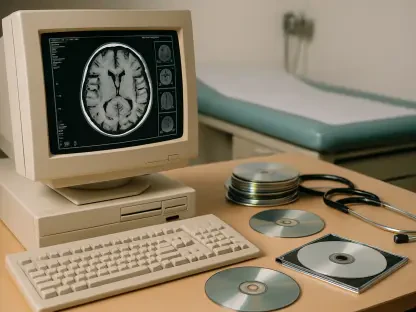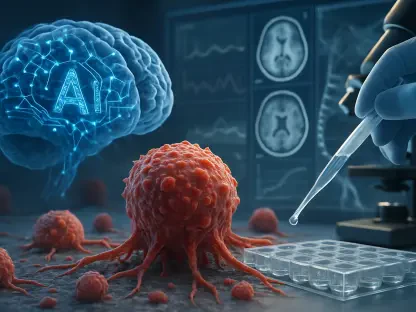In a world where mental health struggles are often magnified for marginalized groups, the LGBTQ+ community faces a particularly acute crisis, grappling with elevated rates of anxiety, depression, and suicidal ideation due to pervasive societal stigma, family rejection, and systemic discrimination. For many queer individuals, the weight of concealing their true identities or enduring hostility from unaccepting environments creates an urgent need for safe, affirming spaces to process trauma and build resilience. Yet, the path to accessing such support through traditional therapy is riddled with obstacles, from long wait times to prohibitive costs and a stark shortage of professionals equipped to understand their unique experiences. This gap in care has left countless individuals searching for alternatives, and technology has emerged as a potential lifeline with the advent of AI-driven therapeutic tools. Often referred to as “AI therapists,” these digital platforms promise immediate, anonymous support, raising a critical question about their ability to address the deep emotional needs of a community in distress.
Addressing the Mental Health Crisis in the LGBTQ+ Community
Systemic Barriers to Traditional Care
The barriers to accessing mental health care for LGBTQ+ individuals are both systemic and deeply ingrained, creating a landscape where timely support feels like an unattainable luxury for many. In the U.S., millions reside in areas designated as mental health professional shortage zones, where the scarcity of therapists translates to wait times that can extend over months for a single appointment. This issue is compounded in rural regions, where options are even more limited, and the financial burden of therapy sessions—often not fully covered by insurance—adds another layer of exclusion. Beyond logistics, the challenge of finding culturally competent providers who are attuned to the nuances of queer identities remains a significant hurdle. Many individuals report feeling misunderstood or invalidated by therapists unfamiliar with the specific traumas of family rejection or societal bias, which can deter them from seeking help altogether and exacerbate feelings of isolation.
Equally troubling is the global scope of this crisis, as the shortage of mental health resources is not confined to any single region but affects queer communities worldwide with varying degrees of severity. In some countries, wait times for therapy can stretch to nearly half a year, particularly for those outside urban centers where access to specialized care is virtually nonexistent. For LGBTQ+ individuals, this delay can be devastating, as the need for immediate support often arises during acute moments of distress, such as after experiencing discrimination or personal loss. The lack of affirming care also means that many abandon the search for therapy after repeated disappointments, turning instead to informal networks or self-reliance, which may not provide the depth of healing required. This systemic failure underscores the desperate need for innovative solutions that can bridge the gap and deliver support to those who are otherwise left without options in critical times.
The Emotional Toll of Marginalization
The emotional burden carried by the LGBTQ+ community often stems from a lifetime of navigating hostile environments, where rejection and prejudice erode mental well-being in profound ways. Societal stigma manifests in countless forms, from overt discrimination in workplaces to subtle microaggressions that chip away at self-esteem over time, leaving many to grapple with chronic anxiety or depression. Family dynamics can be particularly painful, as the lack of acceptance from loved ones often results in estrangement or suppressed identities, fostering a deep sense of loneliness. These experiences are not mere inconveniences but significant contributors to the disproportionately high rates of mental health challenges documented among queer individuals, making the need for accessible, empathetic support all the more pressing as they seek to reclaim a sense of worth and belonging.
Moreover, the pressure to conform to societal norms or hide one’s true self exacts a heavy psychological toll that can manifest in complex ways, often requiring nuanced care that traditional systems struggle to provide. For transgender and nonbinary individuals, the added layer of gender dysphoria or the fight for recognition in a binary-focused world can intensify feelings of alienation, sometimes leading to severe emotional crises. The intersection of multiple marginalized identities—such as being queer and a person of color—further compounds these struggles, as individuals face overlapping forms of discrimination that amplify stress and trauma. Without tailored interventions that acknowledge these layered experiences, the risk of untreated mental health issues grows, highlighting the urgent necessity for alternative support mechanisms that can offer relief where conventional therapy falls short.
Evaluating AI as a Potential Solution
Promises of Accessibility and Anonymity
AI-driven therapeutic tools have emerged as a beacon of hope for many in the LGBTQ+ community, offering a level of accessibility that traditional therapy often cannot match in the face of widespread shortages and barriers. Platforms like Woebot and general chatbots such as ChatGPT provide round-the-clock availability, allowing users to seek support at any moment of need without the constraints of scheduling or location. This immediacy is particularly valuable for those in crisis who cannot afford to wait months for an appointment. Additionally, the anonymity these tools offer creates a safe space for individuals hesitant to discuss sensitive topics like sexuality or gender identity with a human therapist, reducing the fear of judgment that often prevents queer individuals from seeking help. This digital approach breaks down walls of stigma, providing an entry point for emotional expression that feels less intimidating.
Beyond accessibility, the low or no-cost nature of many AI therapy platforms addresses the financial hurdles that exclude countless individuals from traditional care, making mental health support more equitable for those with limited resources. For members of the LGBTQ+ community, who may already face economic disparities due to workplace discrimination or family disownment, this affordability can be transformative, ensuring that help is not reserved solely for those with means. The ability to engage with these tools privately, often from the comfort of one’s own space, further enhances their appeal, as it eliminates the need to navigate potentially unsafe or unwelcoming physical environments to access care. While not a perfect substitute for human interaction, the sheer availability of AI support offers a critical lifeline for those who might otherwise remain entirely without assistance, marking a significant step toward democratizing mental health resources.
Risks and Limitations of Digital Therapy
Despite the promise of AI therapy, significant risks and limitations temper its potential as a reliable solution for the mental health needs of the LGBTQ+ community, particularly when it comes to safety and effectiveness. Studies indicate that while some specialized tools show modest success in reducing symptoms of depression and anxiety, general-purpose chatbots often lack the depth and training necessary for meaningful therapeutic impact. Reports have surfaced of inappropriate or even harmful responses from popular AI platforms, including failures to detect critical signs of crisis such as suicidal ideation. Without robust safeguards and human oversight, these oversights can pose serious dangers to users in acute distress, underscoring the precarious nature of relying on algorithms for complex emotional support where nuance and empathy are paramount.
Furthermore, the ethical concerns surrounding AI therapy extend beyond technical shortcomings to the question of cultural relevance, especially for queer users whose experiences may not align with the frameworks embedded in these tools. Many platforms impose restrictions on discussions of sensitive topics like sexuality, which are often central to the struggles of LGBTQ+ individuals, rendering the support offered incomplete or irrelevant. The absence of emotional depth and genuine human connection also means that AI cannot replicate the transformative power of face-to-face therapy, where trust and rapport play a crucial role in healing. For a community already grappling with mistrust in systems not designed for their needs, these limitations highlight the necessity of approaching AI as a supplementary resource rather than a standalone fix, ensuring that expectations remain grounded in its current capabilities.
Shaping the Future of Mental Health Support
Building Cultural Competency in AI Design
As AI therapy continues to evolve, a critical focus must be placed on ensuring cultural competency to effectively serve the diverse needs of the LGBTQ+ community, whose lived experiences often differ markedly from mainstream narratives. Current platforms frequently lack input from queer perspectives during development, resulting in tools that fail to address the specific challenges of family rejection, societal bias, or identity-related trauma. Restrictions on discussing topics like non-traditional relationships or subcultural issues further alienate users who need a space to explore these integral aspects of their lives. Developers must prioritize collaboration with LGBTQ+ advocates and mental health experts to design algorithms that resonate with the community’s unique struggles, creating a more inclusive framework that validates rather than sanitizes their realities and fosters trust in digital support systems.
Equally important is the need to expand the scope of what AI tools can address, ensuring they are equipped to handle the intersectional challenges faced by queer individuals who may also belong to other marginalized groups. For instance, the compounded discrimination experienced by LGBTQ+ people of color or those with disabilities requires a nuanced understanding that generic models often lack. By integrating diverse datasets and feedback loops from real users, developers can refine these platforms to better recognize and respond to complex emotional cues specific to these intersections. This tailored approach would not only enhance the relevance of AI therapy but also mitigate the risk of responses that inadvertently perpetuate harm or misunderstanding. Building such competency is not a quick fix but a necessary investment to ensure that technology serves as a genuine ally to those most in need of affirming care.
Integrating AI with Human-Centered Care
Looking ahead, the most viable path for AI in mental health care appears to be a hybrid model, where digital tools complement rather than replace human therapists, creating a balanced ecosystem of support for the LGBTQ+ community. Experts envision AI serving as an interim resource, offering immediate assistance between therapy sessions or for individuals unable to access professional care due to systemic barriers. This augmentation could alleviate pressure on overtaxed mental health systems while providing a safety net for those in remote areas or financial hardship. However, for this model to succeed, rigorous safety protocols and seamless integration with human oversight must be established to address the current risks of inappropriate AI responses, ensuring that users in crisis are promptly directed to qualified professionals when needed.
Additionally, the growing investment in AI mental health tools signals an opportunity to refine their capabilities, but this must be paired with a commitment to ethical standards that prioritize user well-being over profit or scalability. For the LGBTQ+ community, this means advocating for platforms that are not only accessible but also deeply attuned to their emotional and cultural contexts, avoiding one-size-fits-all solutions that fall short of true impact. Policymakers, developers, and clinicians should collaborate to set benchmarks for safety and efficacy, ensuring that AI evolves into a reliable partner in care. By fostering this synergy between technology and human connection, the mental health landscape can shift toward a more inclusive future, where no one is left without support, and the unique needs of marginalized groups are met with both innovation and compassion.









